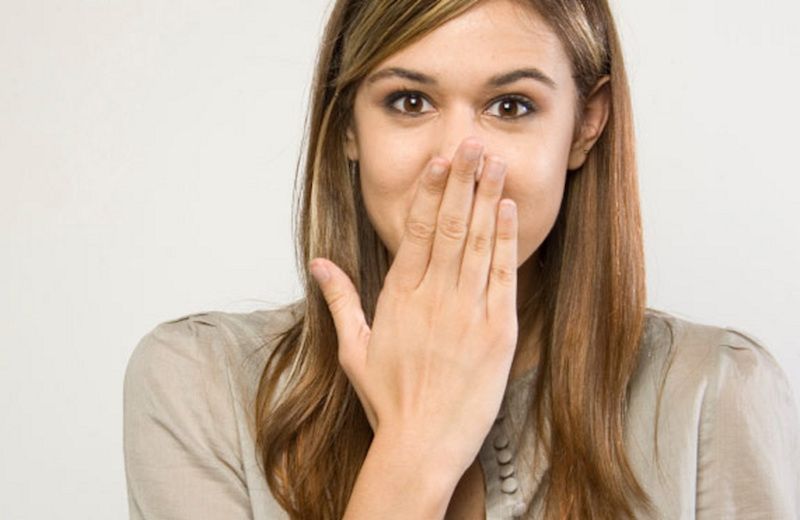A hiccup is a brief involuntary contraction of the muscles in the diaphragm. This muscle separates the chest from the abdomen and plays a vital role in breathing. After every contraction, a quick closure of your vocal cord follows, this typically produces the ‘hic’ sound.
Hiccupping is often rhythmic and may at times go hand in hand with, a partial tightening sensation of your throat, chest, and abdomen. In most instances, hiccups are resolved or cured in a short duration of time, and very rare as medical emergencies. Visit your doctor when your hiccup lasts for three hours or more, or if they are frequently affecting your sleeping patterns, eating habits, cause food reflux or vomiting, severe abdomen pains, spitting blood, or shortness of your breath.

Chronic or severe hiccups that aren’t curable at home, we advise you to consult a doctor. Medical treatment can include anesthesia medication that helps to block phrenic nerve. Disabling the phrenic nerve through surgery is usually the treatment of the last resort.
Hiccups are commonly caused by:
1. Eating Quickly
When you eat food too fast, you can swallow air along with the food and end up having hiccups. Drinking much-carbonated beverages or eating too spicy and fatty foods can likely distend your stomach lining as well as irritate the diaphragm, causing a hiccup. Therefore, you can prevent hiccups by avoiding eating too quickly, overeating or eat much.
Eating too fast can also cause bloating. You can quickly fall for this habit without realizing it. Eating quick is associated with high rate of metabolism disorder.
How fast is too fast? You find that your body takes approximately 20 minutes to feel full. So, if in any case, you are using less than 20 minutes to clear your plate, probably you will overeat without even noticing it. Scientists believe it’s because, there is a release of the gut hormone into your gastrointestinal tract, when you eat, which signals the brain that, it’s time to stop eating. That explains why it’s harmful to eat fast while relying on the fullness signal, to indicate when to stop eating (opposing to the selection of small portions and eating only that).
2. Bloated Stomach
Bloating feels like an air bubble in your stomach which is caused by indigestion. Chronic problems in digestion or eating habits can cause this indigestion. The air bubble that is usually trapped in your stomach stimulates sensory limbs of your reflex at receptors inside the stomach, in the diaphragm as well as in the esophagus. Some common symptoms of bloating are:
Bloating of the stomach can lead to discomfort in breathing since the muscle separating your chest to your abdomen is being altered which may cause hiccups.
3. Smoking
Smoking is harmful to your health. Inhaling smoke can eventually affect the respiratory system. Smoking, as well as chewing gum, cause swallowing of air, leading to irritation of the diaphragm, therefore creating a hiccup. Smoking additionally causes some respiratory diseases namely:
Usually, when there is a grasp of air, the diaphragm contracts and your lungs take in the oxygen. But when the diaphragm contracts without rhythm, caused by the sudden rushing of wind to the lungs, this is the leading cause of hiccups when smoking. To relieve hiccup, you can press the diaphragm gently.
4. Alcohol
Drinking alcoholic drinks can trigger hiccups. That happens when there is irritation of your phrenic nerve which is usually with the esophagus. Something we should all keep in mind is, champagne, beer, using soft drinks as mixers and most alcoholics have additional air in them. This air could as well cause hiccups. Often, hiccups caused by taking alcoholic beverages that only last for a few minutes. To stop the hiccup, you can try to burp the air out or by drinking a glass of warm water slowly without breathing.
5. Hot Beverage
Taking hot beverages can irritate the phrenic nerves, which is usually near your esophagus. Anything that causes stomach distension, e.g., drinking hot liquids can lead to the onset of hiccups. The sudden change of temperature in the stomach lining can as well caused hiccups. You can clear this hiccup by, standing up, bending over, and placing your mouth on the opposite direction of your glass. When still leaning forward, tilt glass way from your body. Additionally, you can suck a slice of lemon like a sweet.
6. Excitement
It is one psychological factor that can cause hiccups. During the excitement, when the air inhaled air hit the voice box, your vocal cord suddenly close and therefore you are left with hiccups. Some of the things that make the diaphragm feel irritated also include nervousness. To relieve the hiccup, you may try holding the tip of your tongue with your fingers and tug. Also, can as well place some sugar granules under your tongue and swallow when it melts. In most instances, no medical attention is required to relieve hiccups.
7. Air Temperature
The diaphragm works correctly in most cases, but when too hot or too cold to inhale, it gets irritated. When it happens, the diaphragm muscles rapidly pull down shakily, leading to a sudden suck of air into your throat. This sudden movement of the diaphragm muscles causes a big hiccup. Hiccups caused by inhaling air with the different temperature only last for a few minutes. If it persists you can relieve it by compressing the chest gently; you can achieve this by swiftly leaning forward. Additionally, you can as well create pressure on the sides of your nose while swallowing.